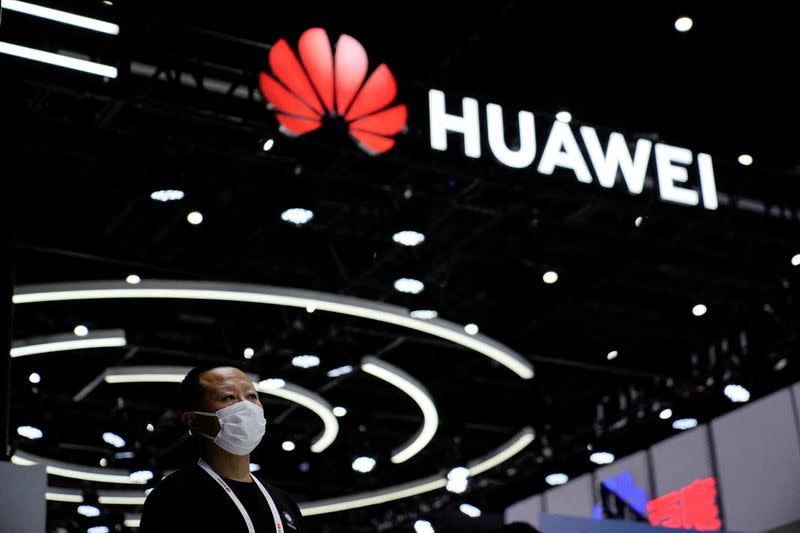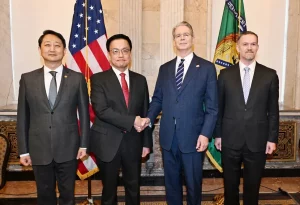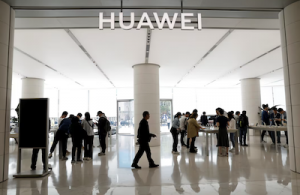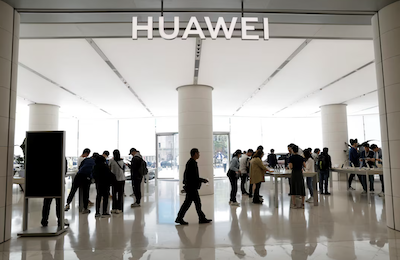China’s Huawei Technologies has announced it will sign a multi-year patent licensing deal with Amazon in a move to end its lawsuits against the US tech giant.
The US-sanctioned Chinese tech giant did not disclose most terms of the deal.
But Alan Fan, head of Huawei’s intellectual property rights department, said the Chinese firm had ended its lawsuits against Amazon in Germany over patented technology related to wifi and video playback.
Also on AF: China Aims for Self Sufficiency in Emerging Tech, AI, Big Data
The United States has barred Chinese telecom companies from its market, citing concerns about data, and designated Huawei and ZTE as threats.
The sanctions spurred US carriers to remove equipment from the sanctioned firms from their US networks.
Washington has, since 2019, also prevented US firms from supplying Huawei with chips and other components. While the bans crippled Huawei’s smartphone business, the Chinese firm chartered a return last year with the launch of its Mate 60 series.
Huawei’s reported breakthroughs in producing 7nm and 5nm chips have largely been seen as the firm defeating sanctions imposed by the US.
Its the patent licence deal with Amazon, despite those tensions, shows “American and Chinese companies and companies from other regions are cooperating without limitations in standards and patent licensing,” Fan said.
Huawei also announced it had signed a cross-licensing patent deal with domestic smartphone maker Vivo covering communication technologies including 5G. Huawei has similar patent agreements with Chinese smartphone manufacturers Xiaomi and Oppo.
- Reuters, with additional editing by Vishakha Saxena
NOTE: Links were added to the text in this report.
Also read:
Huawei, SMIC Set to Defy US Sanctions With 5nm Chips: FT
Year of Wins Propels Huawei From ‘Survival’ to $100bn Revenue
Apple Outshone by Huawei, Xiaomi on China’s Singles Day
Huge Huawei Sales Boom Turns Around China Smartphone Market
Huawei, Tencent Lead China Cybersecurity Patents Push – Nikkei
Huawei Banks on Tech Patents As New Revenue Source – Nikkei
























